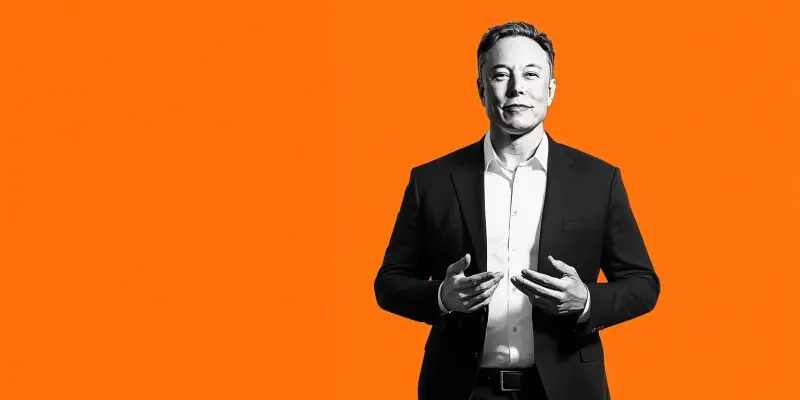Elon Musk is spearheading the introduction of blockchain technology into U.S. government operations through the Department of Government Efficiency (D.O.G.E), established by an executive order from former President Donald Trump on January 20. The primary goals of this initiative are to enhance transparency, secure sensitive data, track federal expenditures, process transactions, and manage government facilities via decentralized ledger systems. The department is mandated to recommend government spending reductions by July 4, 2026.
The Drive for Government Transparency
D.O.G.E’s Blockchain Implementation
Musk had started assembling a team of volunteers for D.O.G.E even before its official launch, signaling his commitment to integrating blockchain into federal operations. His proactive approach and dedication to this cause were evident from the beginning, showing his enthusiasm for unlocking blockchain’s potential in the public sector. The concept gained momentum after a presentation to Trump’s transition team in December, emphasizing blockchain’s ability to combat fraud, waste, and abuse. Despite the mixed results of blockchain implementations in various sectors, many believe that in public administration, it could enhance transparency and efficiency significantly.
Noteworthy is the fact that while blockchain has shown promise across different industries, its application in government operations is still in its early stages. Some private projects have faltered due to governance issues and high costs. However, public blockchains like Bitcoin and Solana offer enhanced transparency, suggesting that similar technology in government could greatly improve accountability. The D.O.G.E initiative’s pursuit of these objectives is aimed at providing a future-proof solution that addresses inefficiencies and lack of transparency in current government processes.
Addressing Skepticism and Legal Challenges
The initiative has been met with enthusiasm from cryptocurrency advocates who argue for the recording of government expenditures on immutable public ledgers. Such ledgers could provide unprecedented transparency into how public funds are utilized, reducing opportunities for mismanagement or fraud. Suggestions have been made to leverage specific blockchain networks like Cardano and Bitcoin, underscoring the potential capabilities of existing systems. As D.O.G.E establishes its presence in the White House, plans are underway to deploy teams to federal agencies to assess blockchain’s optimization potential and its suitability for various administrative functions.
However, skepticism persists, particularly from a labor union representing federal employees, which has taken legal action against the administration. The union argues that the cost-cutting measures proposed could result in job losses without addressing deeper structural issues within the government. Additionally, there is ongoing debate about the sustainability of integrating blockchain into government functions, considering Elon Musk’s fluctuating support for cryptocurrency. Despite these challenges, the initiative suggests a significant shift in how government processes might be managed digitally, promoting transparency and efficiency through innovative technology.
Musk’s Role and Potential Conflicts of Interest
Close Ties with the Trump Administration
Musk’s close ties with Trump have played a significant role in his involvement with D.O.G.E. His financial contributions to Trump’s campaign and advisory role have helped position him as a key figure in this modernization effort. The collaboration between Musk and the Trump administration has brought blockchain technology to the forefront of government operations, marking a groundbreaking change in how public sector transactions and data management are approached. This partnership underscores the importance of having influential stakeholders committed to driving significant tech advancements in federal operations.
However, Musk’s involvement raises concerns about potential conflicts of interest, particularly regarding government contracts that could benefit his companies, Tesla and SpaceX. Critics worry that even though Musk is not drawing a salary for his role at D.O.G.E, his influence on federal budgetary decisions could inadvertently favor his business interests. This concern is further exacerbated by the historic intertwining of Musk’s ventures with federal funding and contracts, raising questions about impartiality and the true beneficiaries of this initiative.
Introducing Blockchain into Federal Operations
Elon Musk is leading an initiative to incorporate blockchain technology into U.S. government operations through the newly established Department of Government Efficiency (D.O.G.E). This department was set up by an executive order from former President Donald Trump on January 20. The primary objectives of this initiative include enhancing transparency, securing sensitive government data, and tracking federal expenditures. Additionally, it aims to process transactions and manage government facilities using decentralized ledger systems. These decentralized systems are expected to bring about significant improvements in security and efficiency. One of the crucial tasks of the Department of Government Efficiency is to recommend federal spending reductions. They have a deadline to provide these recommendations by July 4, 2026. This initiative reflects a significant step towards modernizing government operations with advanced technology, potentially leading to more efficient and accountable management of governmental resources.

